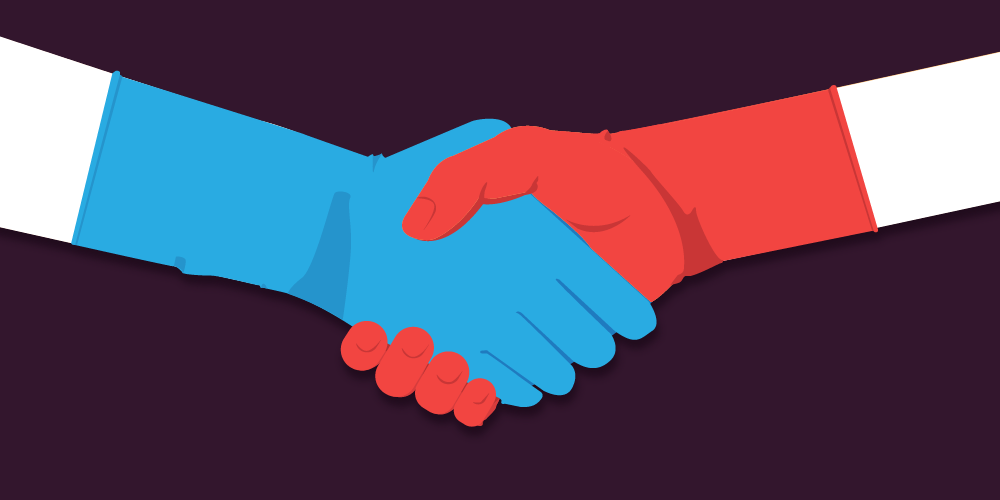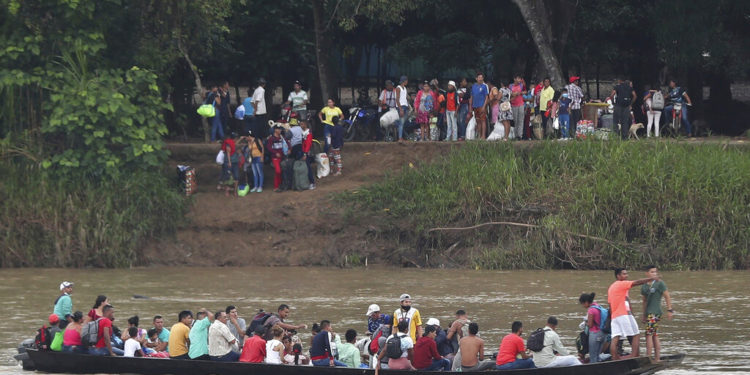CODHEZ believes that human rights require constant advocacy, even if they are already recognized in the Constitution and international treaties so that they benefit and offer better guarantees to an ever increasing number of people
In Venezuela, the general situation of social, economic, and cultural human rights is increasingly alarming for all citizens, defenders, and civil society initiatives related to human rights and humanitarian action. However, the regions most exposed to vulnerabilities, such as the state of Zulia, are a source of concern due to the fragile living conditions of the people given the implementation of authoritarian measures of social control that exacerbate the country’s complex humanitarian crisis.
“Therefore, there are several concerning situations regarding living conditions that the State may not have paid attention to but continue to be present and threaten the present and future of the country,” said Juan Berríos, a lawyer from Universidad del Zulia.
For this reason, civil society organizations are fundamental and necessary, organizations such as the Commission for Human Rights of the state of Zulia (CODHEZ) that promote and defend human rights through free legal assistance, advice to victims and their families, and the preparation of reports on the general situation of human rights in the region, with special emphasis on the area of food security and public services.
“Unfortunately, if the current challenges in the field of human rights are not met with planned and concrete responses, the complex humanitarian emergency will continue to intensify across the national territory,” he stressed.
According to information provided by CODHEZ, the provision of drinking water, electricity, and public transportation has worsened over the years. In addition, other problems such as fuel shortages and the abuse of the security forces have arisen.
State silence continues
For Berríos, this alarming context requires public policies properly developed by specialists in different areas in consultation with citizens in order to provide solutions to the entire population that are efficient in the short, medium, and long term.
That is why in 2020, the civil association not only monitored food insecurity in the state of Zulia but also prepared a citizen petition entitled “Urgent actions against hunger in Zulia”, in alliance with experts in the areas of production, distribution, and commercialization of food, and specialists in nutrition in order to promote public policies that solve the existing problem.
“The proposal, signed by more than 300 people and 50 national NGOs, was made public through a petition for public support and to raise awareness about food insecurity. However, the local authorities did not give any kind of response”, added the General Coordinator of the civil association.
It is worth mentioning that the Commission for Human Rights of the state of Zulia (CODHEZ) receives complaints about arbitrary detentions, extrajudicial killings, illegitimate surveillance, attacks, and threats through its website and social media, and provides support to victims of human rights violations.
“With our actions, we do everything possible to try to protect citizens, human rights defenders, and organizations that have seen their rights violated,” he emphasized.
Problems persist and worsen
The Commission for Human Rights of the State of Zulia (CODHEZ) has observed that serious human rights violations in Venezuela have increased as a result of wrong public policies and a history of injustice in recent years.
The most serious violations they have documented have to do with arbitrary detentions, prosecutions, torture, and other ill-treatment in the context of the protests against the government of Nicolás Maduro of 2015 and 2017. But in 2018 they began to focus on documenting the serious and acute food insecurity in Maracaibo, which they have been denouncing together with other NGOs, without receiving any kind of response from the authorities to change the situation.
In the lawyer’s opinion, almost all areas of human rights – social, economic, and cultural – have seen how different gaps have been opening and aggravating the complex humanitarian crisis for most of the people. In fact, according to CODHEZ, there are pressing problems in education, where irregularities in school and university classes have been the norm in the last two years. In addition, the Zulia region exhibits a huge deficit in healthcare because most people do not have health insurance.
“Therefore, there are several concerning situations regarding living conditions that the State may not have paid attention to but continue to be present and threaten the present and future of the country,” he said.
An unstoppable neglect
Berríos indicated that promoting and defending human rights in Venezuela is a high-risk task since the conditions, freedoms, and spaces involved in this work have been drastically reduced by the actions of the authorities. “Under those circumstances, the working conditions, both of human rights defenders and civil society organizations, risk worsening while we keep raising our voices in the face of injustices,” he said.
Despite this, different international organizations have spoken out about the general human rights situation in the country. Specifically, the United Nations High Commissioner for Human Rights and the Independent International Fact-Finding Mission on Venezuela have mentioned the cases of extrajudicial killings and torture that occur in the Zulia region, making the documentation of the realities in the different regions even more essential in finding answers to the country’s situation.
“Both CODHEZ and different international organizations have urged the Venezuelan State to take corresponding measures to enforce the commitments established in the Constitution and international treaties. But we regret that no greater effort is being made to honor the obligations in terms of freedoms, non-discrimination, and guarantees of better living conditions for the entire population, ”he said.
Criticism is condemned
In matters of food security, public services, education, and healthcare, CODHEZ recommends the State carry out a thorough diagnosis of the reality of Venezuela so it can then develop a national plan that is effective in the short, medium, and long term.
“Most of these problems are solved with the intervention and resources of the State since neither civil society nor international organizations can replace the capacity of the authorities. In addition, the authorities have the responsibility to provide answers, ”he said.
According to the member of the civil association, the challenge is to continue doing the work of promotion and defense of human rights with conditions that make it more effective in Venezuela. However, the defender believes that the acts of criminalization and harassment against the NGO Azul Positivo changed the outlook for all civil society organizations and initiatives related to human rights and humanitarian action.
“In recent years, criticism has been condemned and frowned upon. In other words, those who criticize are at risk of losing their freedom and even their own life, ”Juan Berríos emphasized.
In this sense, Amnesty International Venezuela and the Commission for Human Rights of the State of Zulia recall that defending human rights and exercising humanitarian action is not a crime since the international regulations on the matter establish this type of activity as legitimate and, as a result, the government has to refrain from taking any kind of reprisals against those who exercise actions for the protection of human rights.
Long lasting partnerships
“CODHEZ, together with a large number of NGOs, keeps the flame of hope burning in the face of adversity toward obtaining justice and reparation in the country,” he declared.
This is why it is important to remember that the existence of Non-Governmental Organizations (NGOs) dedicated to the promotion and defense of human rights is also a means to promote reflection among public opinion and deliberation on issues related to human dignity. Therefore, these organizations help prevent human rights from being easily overlooked and violated by the different instances of power that cast a shadow on the recognition and guarantees of the rights of all people.
“The human rights of the entire population require constant advocacy, even if they are already recognized in the Constitution and international treaties, so that they benefit and offer better guarantees to an ever increasing number of people,” concluded the lawyer.
Translated by José Rafael Medina




